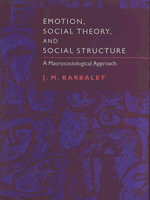1 - Emotion in social life and social theory
Published online by Cambridge University Press: 22 September 2009
Summary
This chapter addresses the question of the place of emotion in sociology, and therefore in social processes. The matter is dealt with in this manner, rather than beginning with emotion in society, because while the role of emotion in social life can be taken to be more or less constant, the category of emotion has had a varied career in social analysis. This anomaly requires explanation.
The chapter begins with a discussion of sociology in general, and where emotion might fit into it. It is shown that in its historical origins, in the eighteenth-century Scottish Enlightenment, and in later European and American sociological writing, there was ample space for emotion. But through a number of changes in social organization and intellectual trends, the category of emotion lost its footing in social explanation. And yet, even during the period of overarching cognitivism in social thought, certain sociologists continued to draw upon emotions categories in their accounts of social processes.
Within a more recent generation, some sociologists have returned to a more explicit exploration of emotion in their research. How this redirection arose is also discussed in the chapter, along with a number of the questions it raises. These include the constructionist approach to emotion, the relationship between emotion and culture, and emotion and social structure. Finally, the chapter emphasizes that, while emotion in general is an abstract category, experience is always of particular emotions.
- Type
- Chapter
- Information
- Emotion, Social Theory, and Social StructureA Macrosociological Approach, pp. 8 - 28Publisher: Cambridge University PressPrint publication year: 1998



